Your Ultimate Guide To Lovable Bernese Mountain Dogs
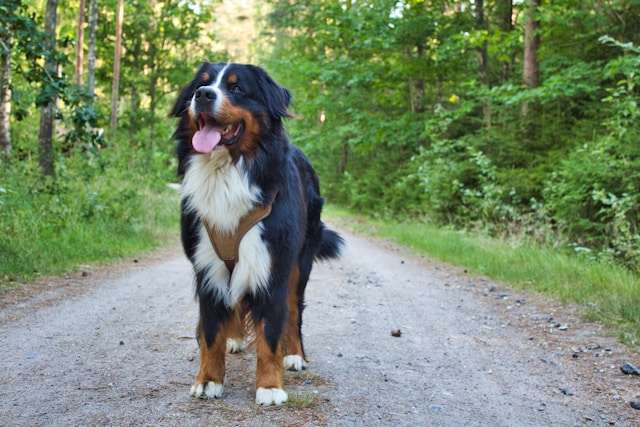
Your Ultimate Guide Lovable Bernese Mountain Dogs.
Bernese Mountain Dogs are gentle giants that capture hearts with their striking appearance and lovable personalities. These large, strong dogs originated in Switzerland as farm helpers and loyal companions. Their distinctive tricolor coat of black, white, and rust makes them stand out in any crowd.
Table of Contents
Bernese Mountain Dogs are known for their calm and affectionate nature, making them excellent family pets and therapy dogs. They form strong bonds with their owners and are patient with children. Despite their size, these dogs have a sweet and gentle disposition that endears them to many.
We can’t ignore Bernese Mountain Dogs’ working dog heritage. They still enjoy pulling carts and participating in various dog sports. Their intelligence and eagerness to please make them relatively easy to train, though they may sometimes have a stubborn streak.
Key Takeaways
- Bernese Mountain Dogs are large, tricolor Swiss working dogs with gentle personalities
- They excel as family pets and therapy dogs due to their calm and affectionate nature.
- These intelligent dogs enjoy various activities, from carting to agility sports.
Breed History and Origin
The Bernese Mountain Dog has deep roots in Switzerland. This breed emerged from a group of working dogs called Sennenhunds. Its history is closely tied to the city of Bern and Swiss farming traditions.
Switzerland and Sennenhund Breeds
Sennenhunds are a family of Swiss mountain dogs. They include the Bernese, Entlebucher, Greater Swiss, and Appenzeller. These breeds share a common ancestry with Roman mastiffs.
Swiss farmers bred Sennenhunds for various tasks. They helped herd cattle, pull carts, and guard farms. Each breed developed unique traits based on local needs.
The Bernese Mountain Dog stood out for its striking tri-color coat. It became a favorite among farmers in the Bern region.
Bern, Switzerland, and the Berner Legacy
Bern played a crucial role in shaping the Bernese Mountain Dog. The breed’s name, “Berner,” directly refers to this Swiss canton.
In Bern, these dogs were vital to farm life. They pulled carts loaded with milk and cheese to market. Their strength and gentle nature made them ideal working companions.
Swiss breeders worked to refine the Bernese Mountain Dog’s traits. They aimed for a strong, loyal, and good-tempered dog. This effort helped create the beloved breed we know today.
Physical Characteristics
Bernese Mountain Dogs have a distinct appearance that makes them stand out. We’ll explore their size and unique coat features that give these dogs their signature look.
Weight and Height
Bernese Mountain Dogs are large, powerful working dogs. Males typically stand 25-27.5 inches tall at the shoulder, while females measure 23-26 inches. Their weight ranges from 70-115 pounds, with males generally being more extensive.
These dogs have a broad chest and strong, muscular build. Their size contributes to their imposing presence, but their gentle nature balances it.
Here’s a quick reference for their size:
| Sex | Height (inches) | Weight (pounds) |
|---|---|---|
| Male | 25-27.5 | 80-115 |
| Female | 23-26 | 70-95 |
Coat and Markings
Bernese Mountain Dogs boast a thick, double coat that protects them in cold weather. Their outer coat is long and silky, while the undercoat is dense and wooly.
The most distinctive feature is their tricolor coat pattern:
- Black base color
- White chest and paws
- Rust-colored markings on the cheeks, above the eyes, and on the legs
Their white markings often form a “Swiss cross” on the chest. This pattern is unique to each dog, making them easily identifiable.
Berners shed moderately year-round and heavily twice a year. Regular brushing helps manage their coat and keeps it looking its best.
Personality and Temperament
Bernese Mountain Dogs are gentle and eager to please. They’re known for being loyal family pets and good with children.
Affectionate and Friendly Nature
Berners are gentle and affectionate dogs. Despite their large size, they love being close to their families and often try to be lap dogs.
When properly socialized, these dogs are friendly with strangers. They’re patient with children and get along well with other pets.
Berners have a calm demeanor, making them great companions for all ages. Their protective instincts make them good watchdogs, but they’re not aggressive.
Intelligence and Trainability
Bernese Mountain Dogs are intelligent and eager to learn. They respond well to positive reinforcement training methods.
Early socialization is critical to developing a well-mannered Berner. They can be trained for various tasks, from basic obedience to more complex activities.
These dogs have a working background, so they enjoy having a job to do. Mental stimulation through training helps keep them happy and well-behaved.
While intelligent, Berners can be a bit stubborn at times. Consistent, patient training yields the best results with this breed.
Health and Care
Bernese Mountain Dogs need proper care to stay healthy and happy. Their large size and thick coats require special diet, exercise, and grooming attention. They also face some breed-specific health concerns owners should watch for.
Nutrition and Diet
Berners need a balanced diet to maintain their hefty frame and active lifestyle. We recommend high-quality dog food formulated for large breeds. Puppies should eat food made for large-breed puppies to support healthy growth. Adult Berners typically eat 3-4 cups of food daily, split into two meals.
Obesity can strain their joints, so we must watch their weight. Treats should make up no more than 10% of daily calories. Fresh water should always be available. Some Berners are prone to bloat, so feeding smaller meals and avoiding exercise right after eating helps reduce risk.
Exercise Needs
Bernese Mountain Dogs need moderate daily exercise to stay fit and happy. We suggest 30-60 minutes of activity each day. This can include walks, play sessions, or gentle hikes. Puppies need shorter bursts of exercise to protect growing joints.
Swimming is a great, low-impact exercise for Berners. But avoid intense exercise in hot weather. Their thick coats make them prone to overheating. Early morning or evening exercise is best in summer. Mental stimulation through training and puzzle toys is also essential.
Common Health Issues
Berners face some breed-specific health problems. Hip and elbow dysplasia are common joint issues. Cancer, especially histiocytic sarcoma, is a significant concern. Other health risks include:
- Von Willebrand’s disease (blood clotting disorder)
- Progressive retinal atrophy (eye disease)
- Gastric dilatation-volvulus (bloat)
Regular vet check-ups help catch issues early. The average lifespan of Bernese Mountain Dogs is 7-10 years. Good care can help them live longer, healthier lives.
Grooming and Shedding
Bernese Mountain Dogs have thick double coats that shed a lot. We must brush them 2-3 times a week, more during shedding seasons in spring and fall. Regular brushing helps control shedding and prevents matting.
Bathe Berners every 2-3 months or when dirty. Trim nails monthly. Check and clean ears weekly to prevent infections. Brush teeth several times a week for good dental health.
Berners drool, especially after eating or drinking. Keep a cloth handy to wipe their mouths. Their coats naturally repel dirt, but paws may need cleaning after outdoor play.
Working Skills and Activities
Bernese Mountain Dogs excel in various working roles. Their combination of strength and agility with a gentle nature makes them versatile workers and competitors.
Historical Working Roles
Bernese Mountain Dogs were farm dogs in Switzerland. They pulled carts filled with milk and cheese from farms to markets. These large dogs also guarded property and herded cattle. Their thick coats helped them work in snow and cold weather.
We admire their strength and endurance. A Berner could pull its weight many times. They often worked in teams to move heavy loads. Their calm temperament also made them good with livestock.
Modern-Day Competitions
Today, Berners showcase their skills in various events. Carting competitions are popular. Dogs pull carts through obstacle courses. This recalls their historic role as draft animals.
We see Berners in other activities, too:
- Agility: They navigate obstacles with speed and grace
- Obedience: They show off their smarts and training
- Tracking: They use their noses to follow scents
- Herding: Some still herd sheep or cattle
Berners can earn titles in these events. The Working Pack Dog title tests their stamina. Dogs carry weight on long hikes. This proves they still have the strength of their working ancestors.
Adoption and Breeders
Bernese Mountain Dogs can be found through reputable breeders or rescue organizations. Getting a Berner requires careful consideration of breed standards and health issues.
Choosing a Bernese Mountain Dog
When looking for a Bernese mountain dog, we recommend exploring adoption and breeder options. Rescues often have adult Berners needing homes, and the National Bernese Mountain Dog Rescue Network is a great resource for finding rescued Berners.
Reputable breeders focus on health and temperament. We suggest asking for health clearances and meeting the puppy’s parents. Avoid puppy mills or pet stores.
Shelters sometimes have Bernese Mountain Dogs or mixes. Be prepared for a thorough adoption process. Many rescues use foster homes to evaluate dogs before placement.
Breed Standards and Expectations
The American Kennel Club sets the breed standard for Bernese Mountain Dogs, also known as Berner Sennenhund. Adult males are expected to be 25-27.5 inches tall, and females 23-26 inches.
Berners have a thick, soft coat that sheds a lot. They need daily brushing.
These dogs are prone to specific health issues:
- Hip and elbow dysplasia
- Bloat
- Cancer
- Eye problems
We advise potential owners to research these conditions. Berners have a shorter lifespan than some breeds, typically 7-10 years.
Temperament-wise, Bernese Mountain Dogs are gentle giants. They’re calm, patient, and good with kids. Early socialization is critical for well-rounded dogs.
Frequently Asked Questions
Bernese Mountain Dogs are beloved pets with unique traits and needs. We’ll address common questions about their lifespan, finding breeders, size, temperament, care, and family suitability.
What is the typical lifespan of a Bernese Mountain Dog?
Bernese Mountain Dogs live 7 to 10 years, shorter than many other dog breeds. To help keep them healthy, we recommend regular vet check-ups.
How do I find a reputable Bernese Mountain Dog breeder?
We suggest starting your search with the Bernese Mountain Dog Club of America. They can provide a list of trusted breeders. Ask to see health clearances for the parents and puppies.
What size and weight can I expect my Bernese Mountain Dog to reach?
Adult Bernese Mountain Dogs are large. They typically weigh between 70 to 115 pounds. Their height ranges from 23 to 28 inches at the shoulder.
What are the common temperament traits of Bernese Mountain Dogs?
Bernese Mountain Dogs are known for being gentle and loyal. They crave human companionship and are devoted to their families. These dogs are usually calm and good-natured.
How much maintenance do Bernese Mountain Dogs require?
Due to their thick coats, these dogs need regular grooming. We recommend daily brushing to prevent matting. They also need about 30 minutes of exercise each day to stay healthy.
Is the Bernese Mountain Dog breed suitable for families?
Yes, Bernese Mountain Dogs are often great family pets. They are patient with children and get along well with other pets. Their gentle nature makes them good companions for families of all sizes.


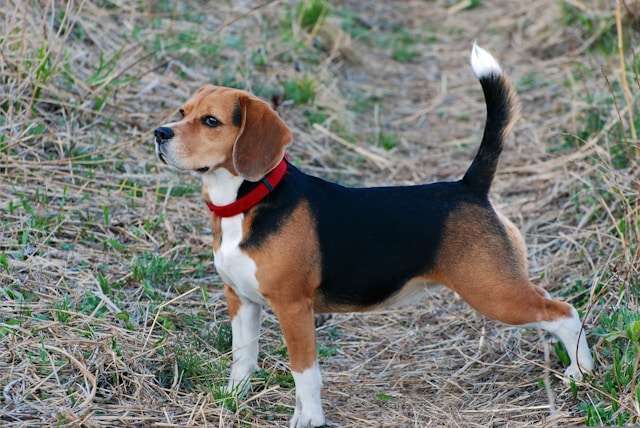
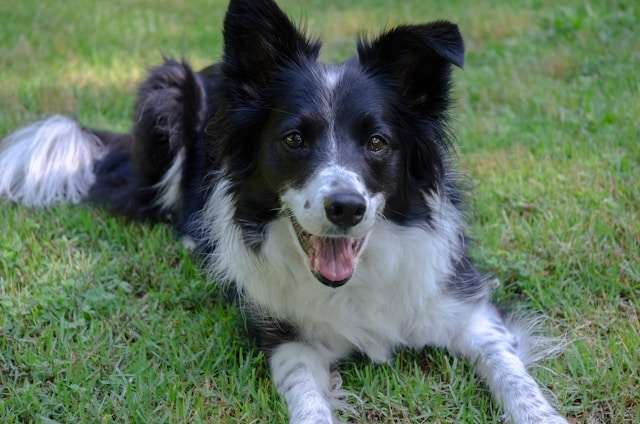
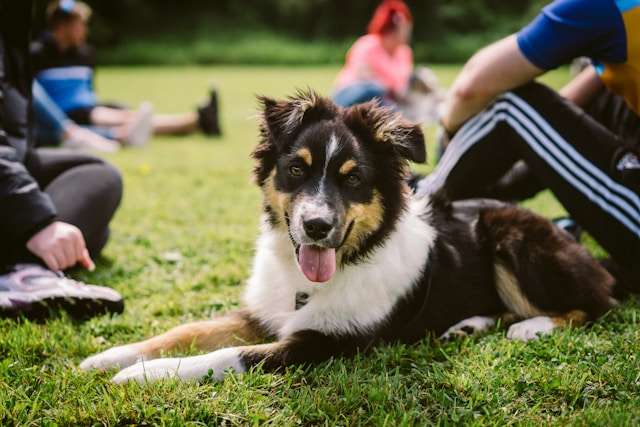
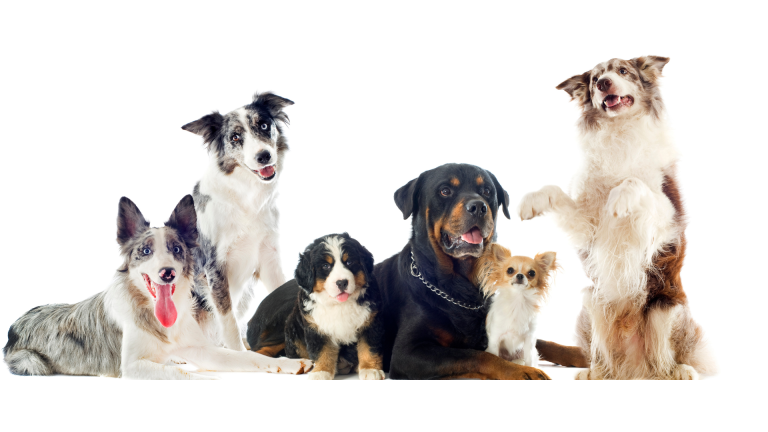
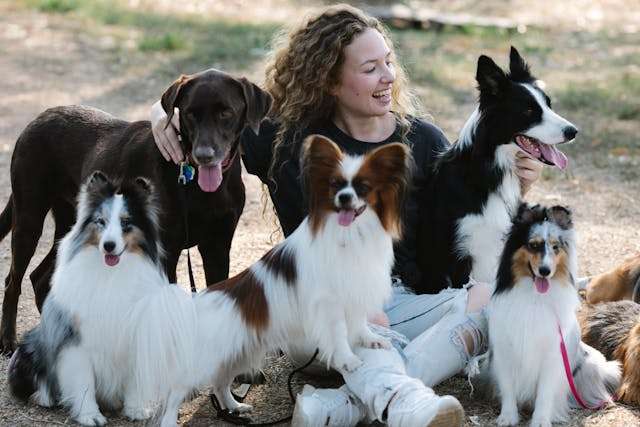
2 Comments